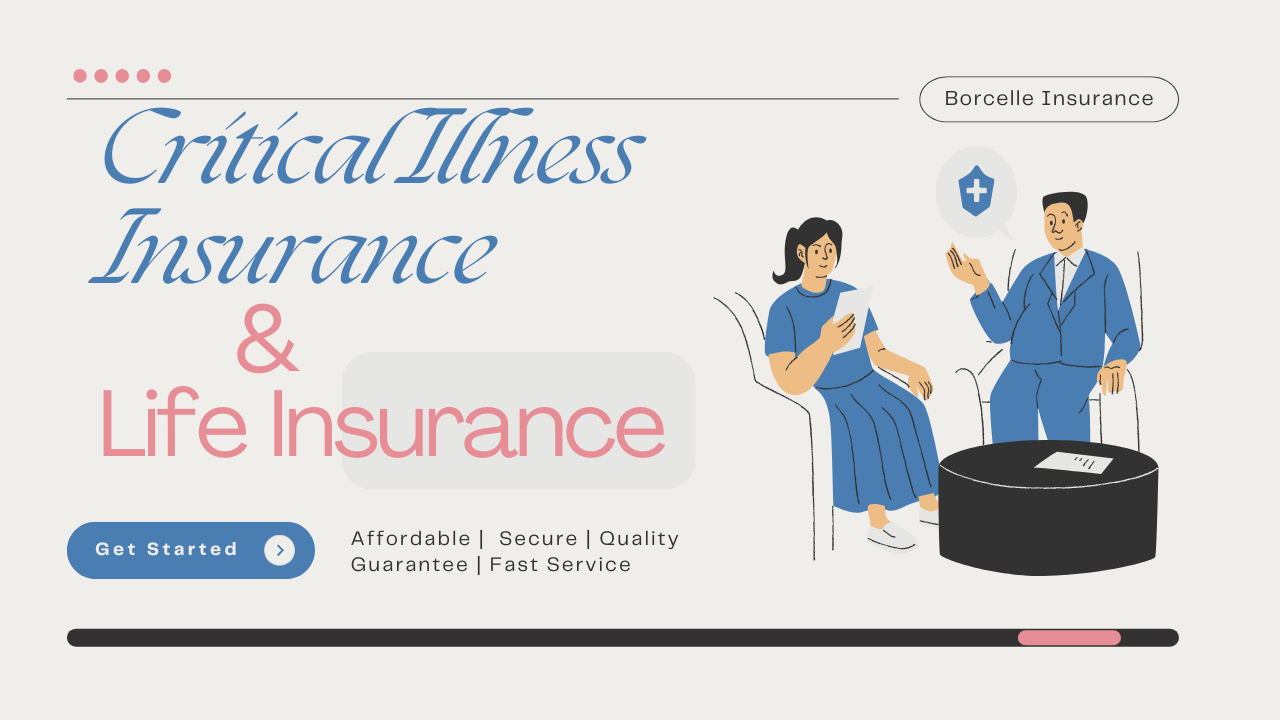What is Credit Life Insurance? When it comes to financial planning, protecting oneself and those you love against unpredictability is crucial. Of all the insurance products on the market, credit life insurance is one of the most important—yet sometimes disregarded—types of financial protection. The goal of this essay is to examine credit life insurance in full, including all of its subtleties, advantages, and considerations.
Introduction to Credit Life Insurance
A specific kind of insurance coverage known as credit life insurance is intended to settle a borrower’s outstanding debt in the case of their demise, incapacity, or serious sickness. It is usually connected to loans, including credit card debt, personal loans, vehicle loans, and mortgages. Essentially, it protects borrowers and their families by making sure that their loans don’t become a burden during difficult circumstances.
How Credit Life Insurance Works?
As part of the loan arrangement, borrowers have the choice to buy credit life insurance when they take out a loan. Typically, the insurance coverage amount is linked to the loan’s remaining balance. The insurance policy settles all or part of the outstanding loan debt in the event of the borrower’s death, disability, or serious illness (as specified by the policy); the amount depends on the terms and coverage limitations.
Key Features and Benefits of Credit Life Insurance
- Financial Protection for Loved Ones: The main advantage of credit life insurance is that it shields the borrower’s loved ones from financial hardship in the event of an early death or incapacitation. It avoids co-signers or family members from having to shoulder the repayment load by paying off the outstanding debt.
- Peace of Mind: Borrowers may feel more at ease knowing that their loans are covered in the event of a life-altering incident. They may relax knowing that at an already trying time, their loved ones won’t have to worry about money.
- No Need for a Medical Exam: Credit life insurance sometimes does not need a medical exam or thorough underwriting, in contrast to regular life insurance coverage. This makes it available to people with pre-existing health conditions or those who may have difficulty obtaining other forms of insurance.
- Convenience: Credit life insurance is frequently included in loan packages, saving borrowers the trouble of looking for and purchasing individual insurance policies.
- Asset Preservation: Credit life insurance can assist borrowers with sizeable estates or assets in protecting such assets by making sure they aren’t used up to pay off debts after they pass away.
Considerations and Drawbacks
Although credit life insurance has several advantages, borrowers should be aware of the following factors and disadvantages:
- Cost: In comparison to standard life insurance plans, credit life insurance rates might be somewhat high. The expense of premiums should be carefully weighed against any possible advantages, and borrowers should think about whether other insurance options would be more cost-effective.
- Coverage Limitations: Credit life insurance contracts may have restrictions for certain pre-existing diseases or reasons of death, as well as maximum benefit amounts. To determine the scope of coverage, borrowers should carefully read the policy’s terms and conditions.
- Decreasing Coverage: Over time, the coverage level offered by the credit life insurance policy reduces in tandem with the loan’s outstanding debt. It is advisable for borrowers to evaluate if the decreasing coverage fits well with their long-term financial requirements.
- Limited Flexibility: Because credit life insurance is linked to certain loans, it cannot be utilized for purposes unrelated to the loan or transferred to other debtors. It is advisable for borrowers to evaluate if the rigidity of credit life insurance suits their requirements and financial objectives.
Alternatives and Supplemental Coverage
Although credit life insurance offers borrowers and their families important protection, it might not be the most economical or all-inclusive choice for everyone. To make sure that their financial demands are sufficiently satisfied, borrowers can look into extra coverage and other insurance options:
- Traditional Life Insurance: In contrast to credit life insurance, traditional life insurance plans provide more flexibility and coverage. They are appropriate for people with a variety of financial objectives since they may offer benefits such as debt repayment, income replacement, and estate planning.
- Disability Insurance: Should an insured person become incapacitated and unable to work, disability insurance replaces their income. It can be used in conjunction with credit life insurance to cover living expenses and continuing debt after loan payback.
- Critical Illness Insurance: In the event that a covered critical illness, such as cancer, a heart attack, or a stroke, is diagnosed, this insurance pays out a lump sum payout. It can offer financial assistance for healing-related medical bills, treatment expenditures, and lifestyle modifications.
- Emergency Savings Fund: Establishing an emergency savings fund is a wise financial move that may act as a safety net in the event of unforeseen costs or income loss. Borrowers might be prevented from depending entirely on insurance coverage to pay their financial commitments by having liquid assets easily accessible.
Final Words of My Opinion:
Credit life insurance is an essential tool for safeguarding borrowers and their families against the financial consequences of unanticipated events. It does this by settling debts in the event of a borrower’s death, disability, or critical illness, giving them financial security and peace of mind during difficult times. Before acquiring credit life insurance, however, borrowers should carefully consider the costs, coverage limitations, and available options to make sure the policy fits their overall goals and financial plan. In the end, the secret to successful financial protection is knowing what one needs to protect themselves against the uncertainties of life.




